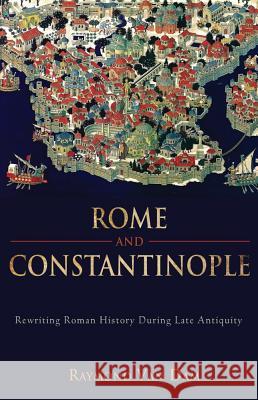Rome and Constantinople: Rewriting Roman History During Late Antiquity » książka
Rome and Constantinople: Rewriting Roman History During Late Antiquity
ISBN-13: 9781602582019 / Angielski / Twarda / 2010 / 110 str.
Imperial Rome and Christian Constantinople were both astonishingly large cities with over-sized appetites that served as potent symbols of the Roman Empire and its rulers. Esteemed historian Raymond Van Dam draws upon a wide array of evidence to reveal a deep interdependence on imperial ideology and economy as he elucidates the parallel workaday realities and lofty images in their stories. Tracing the arc of empire from the Rome of Augustus to Justinian's Constantinople, he masterfully shows how the changing political structures, ideologies, and historical narratives of Old and New Rome always remained rooted in the bedrock of the ancient Mediterranean's economic and demographic realities. The transformations in the Late Roman Empire, brought about by the rise of the military and the church, required a rewriting of the master narrative of history and signaled changes in economic systems. Just as Old Rome had provided a stage set for the performance of Republican emperorship, New Rome was configured for the celebration of Christian rule. As it came to pass, a city with too much history was outshone by a city with no history. Provided with the urban amenities and an imagined history appropriate to its elevated status, Constantinople could thus resonate as the new imperial capital, while Rome, on the other hand, was reinvented as the papal city.











